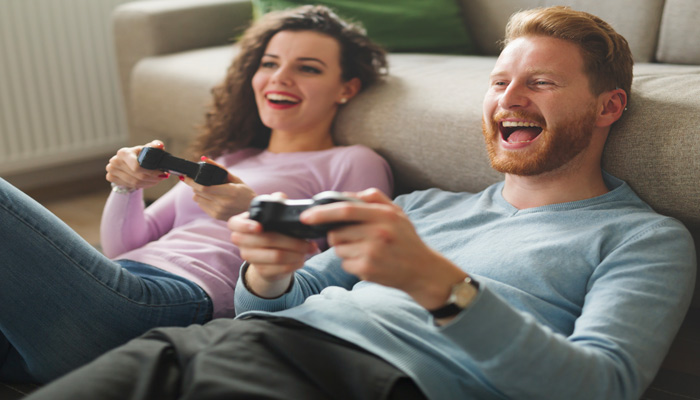Having pets during a pandemic is hugely significant. It gives you that warm body to hold if you’re locked down in isolation. It gives you a reason to get out and about to the extent that you are allowed to, and it forces you to be responsive to another being – you are not isolated, you have to engage with them, you’ve got something that you have to care for.
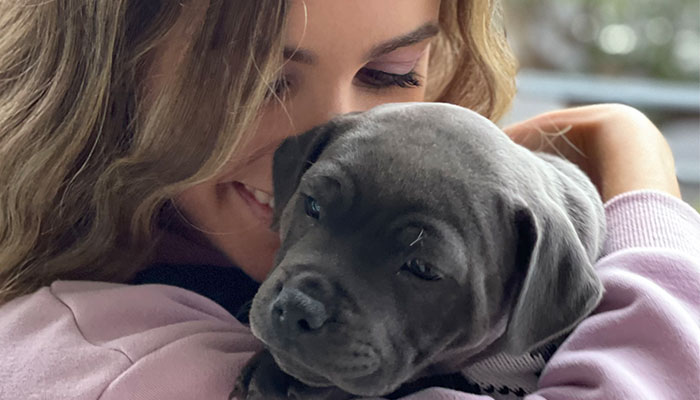
All or nothing: Having animals in our lives means we have obligations about how we ought to treat them.
I always thought of myself as an animal person – I grew up in a country town, both my parents were farmers, so I had links with animals from a very young age – but it was having two little puppies, Cairn terriers Oscar and Cora, that I brought up and spent many years developing a relationship with, that gave me a whole new level of insight, and a predisposition to see things in animals that I may not have recognised in the past.
It is only relatively recently that non-human animal ethics and cognition has come to be regarded as a serious, mainstream area of scholarship and thought. Society has radically shifted in how we think about animals – we regard them so differently to how we did even 20 years ago. We have become more aware of the capacities of other creatures and their ability to feel and to experience the world.
There are important ethical dimensions to our relationships with animals: that is, having animals in our lives means we have obligations to them, about how we ought to treat them if we do choose to bring them into our world.
Beyond 'surrogate children'
A relationship with a pet has to be a mutual thing; I worry if someone just wants it all one-way traffic, that it is all about what the animal can provide for them.
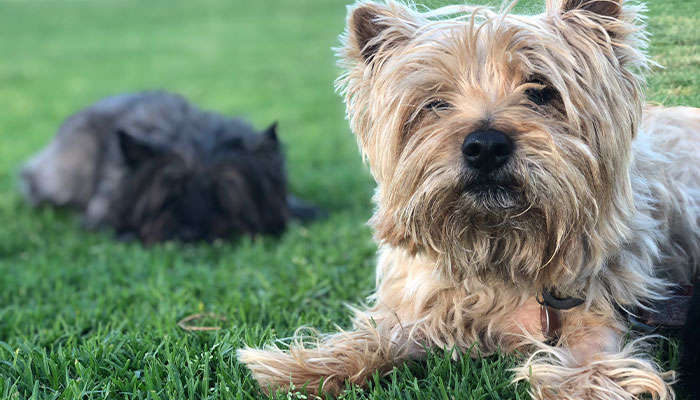
Their terms, too: Dr Jane Johnson's late Cairn terriers Oscar (left) and Cora, who gave her a new level of insight into animals.
And I don’t agree with the idea that pets are just a replacement, that they are somehow surrogate children or similar – I think there can be much more interesting and sophisticated things going on, and that there are a few reasons why people want that close relationship with their pets that are complementary to the connections they have with humans.
For instance, we can be interested in thinking about what it is to have a different kind of existence. So much of the time, historically at least, we set up the world in our human terms and see everything in a way that suits us, and to take the perspective of another creature can be transformative.
- Virtuous dobbing: Why reporting pandemic rule-breaking is a social good
- Saving the bees: $300,000 grant for early warning system in hives
When one of my dogs, Oscar, was quite young I remember thinking that I would really like to get in to how he sees the world and connect with him much more on his terms than just my own. Opening up the possibility of seeing the world through another entity’s eyes is really valuable, not just for our relationships to animals, but to humans as well.
Sometimes people say they love animals more than people, but I think they can actually work together – once you open yourself up, and can acknowledge and see and respond to the vulnerability of an animal, that can actually help you connect with other humans.
It can make you a better human.
What’s behind a lack of connection?
Many people can feel a lack of connection with animals because they haven’t had that opportunity to make that strong link – they may have grown up in a family that, for whatever reason, never had pets. But if people are forced to make that link – if they inherit an animal from a deceased friend or relative, for instance – they can be opened up and can surprise themselves.
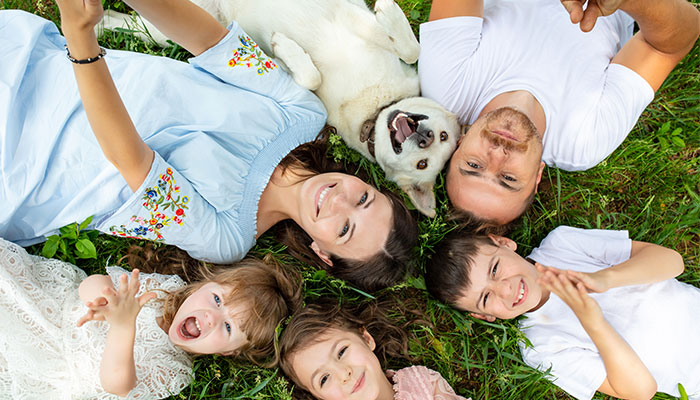
All in the family: People may not feel a connection to animals because they didn't grow up with them.
Someone I know, again from a farming background, spent a heap of money at the vets on one of his chickens, and he was slightly mortified by this: he shook his head and asked, ‘what I am doing?’
But he had had the chickens for a number of years, and he’d started to care for them in a particular kind of way; he had been opened up to this possibility that was nascent there somewhere in him, but might not have ever been triggered if he hadn’t made this link, this connection, with his chickens.
People might also have a more impoverished connection with their animals because they haven’t made much of a conscious choice to have them, and tend to exclude them. I know people whose dog lives in their garage and hardly ever gets out. This might be due to a social norm around having a pet – some people, because they have always had them in their family, don’t even think about it. But I think increasingly that view is untenable. We need to hold ourselves to a higher standard than that.
There is no law that says you need to have a dog. We should always ask ourselves, what is going on here when I am wanting to have this pet?
Personally, I am a little suspicious of someone who feels nothing about animals, who doesn’t have any kind of connection with them – but at the same time, we are all different.
Particularly given animals’ vulnerability, if a human can’t connect to other animals, then I wonder about how they think about people who might be particularly vulnerable – like older people, or children, or those with various kinds of impairments; I am concerned sometimes about what that is saying about other elements of who they are.
But again, I don’t think these things are hard and fast and black and white.
A big decision to make
Sadly, there can be a darker side to people wanting to have pets. Because animals can be easy to manipulate, you have tremendous power when you are the owner of another creature … and some people choose to have that relationship so they can exercise that power that they maybe cannot in other domains of their lives.
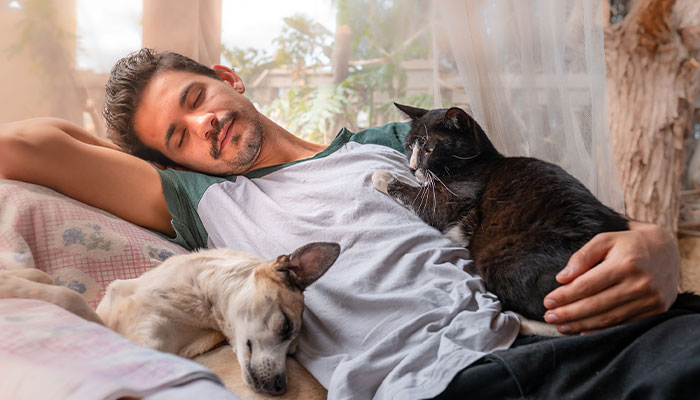
Responsibilities: Having pets needs to be a conscious decision, not one that's made walking past a pet shop, says Dr Johnson.
But on the whole I like to think well of people who have animals.
My hope is that people don’t fall into pet ownership the way they did in the past, when people would walk past a pet shop, see a cute animal and go in and buy it.
There is no law that says you need to have a dog. We should always ask ourselves, what is going on here when I am wanting to have this pet? Am I able to offer it the life it should have, and what is my reasoning here?
If it is entirely selfish, then you should reconsider it. We need to think about it as a conscious decision that we make to have an animal, and what ought to follow from that decision – about the responsibilities and consequences that come with it.
Dr Jane Johnson is a Lecturer in the Department of Philosophy at Macquarie University.


